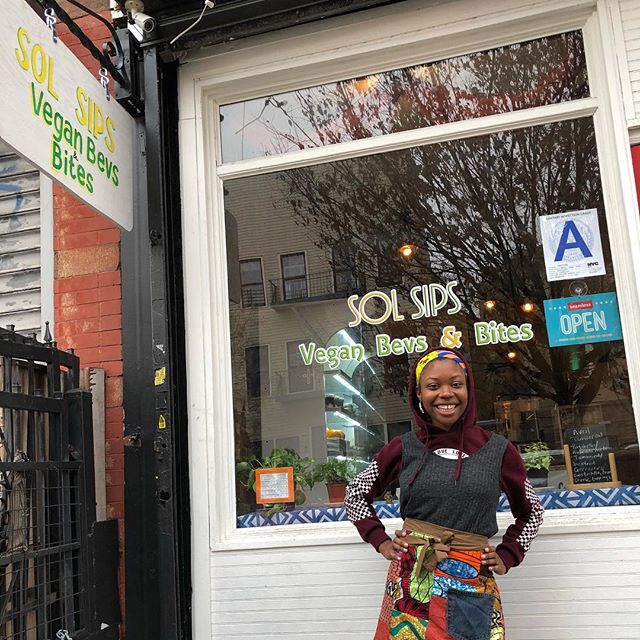
In today’s health-conscious wellness obsessed culture rarely, if ever, is the question about accessibility raised. While we often preach about the benefits of living a greener lifestyle, by those privileged enough to buy a $10 green juice (and yes, that does include many Black folks), it’s important to consider those who would like to but can’t.
In many inner-city communities, particularly low-income ones, access to healthy food options is still very limited. It’s oftentimes easier and much cheaper to find a fast food hamburger, then say a salad. Twenty-one-year-old Francesca “Sol” Chaney noticed this inequality and thought it unfair.
“The wellness community can be really classist,” Chaney tells ESSENCE. “Our intention [with Sol Sips] is to make organic plant-based beverage and bites available to everyone,” she says.
As a full-time student, who worked three jobs, Chaney found herself constantly on the hunt for nutrient dense food that she could consume quickly. “At the time, I had just moved out on my own and began brewing teas and making juices and smoothies. I saw that they were working and I was feeling more energized and lighter,” she says. So she began making her newly minted recipes for friends and family.
Wise beyond her twenty-one years, Chaney has been incorporating wellness practices into her life for quite some time. In addition to working in an apothecary and wellness center, the entrepreneur has been a full-spectrum doula for the last three. “In many Black, Indigenous and Eastern communities it’s a tradition to meditate, grow your own food, create medicinal concoctions and facilitating healing rituals, yet many of the same communities have been ostracized for a very long time,” she says.
In addition to helping her community live healthier lives, most items at her restaurant are made with four ingredients or less, Chaney is committed to being accessible. The restaurant currently offers a monthly sliding scale brunch that offers a full meal, including a beverage, for $7-$15. “My mission to help close the accessibility gap in wellness,” she says.
She also notes that our underrepresentation in the wellness movement is not very different from our underrepresentation in other areas like media and politics. “Clearly, we’ve prepped the table, we’ve yet to get a seat at it,” Chaney believes.
As a young Black entrepreneur, Chaney says her biggest challenge has been gaining access to capital to expand her vision for Sol Sips. “I’m also challenged with finding innovative ways to grow my community through my business in a way where it’s a win/win for the business and my community,” she shares.
These challenges, while very real, haven’t deterred her from setting impressive goals for the year ahead. “I look forward to launching our farm-to-table initiative and creating a Sol Sips internship program for Black and brown girls in East NY, Brownsville, Bushwick and Bedstuy,” she says.
Chaney currently has a GoFundMe for Sol Sips. If you too, want to help health and wellness be more accessible to Black and brown folks consider donating.
